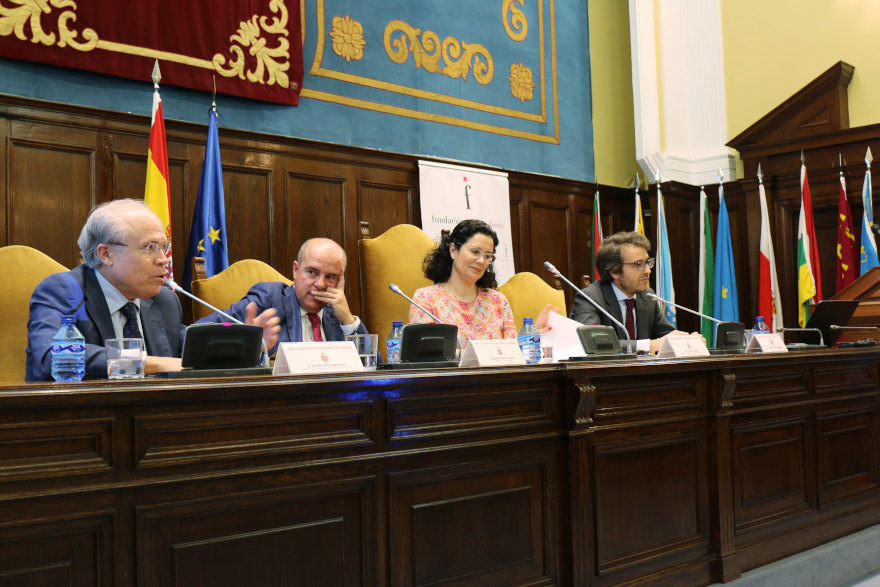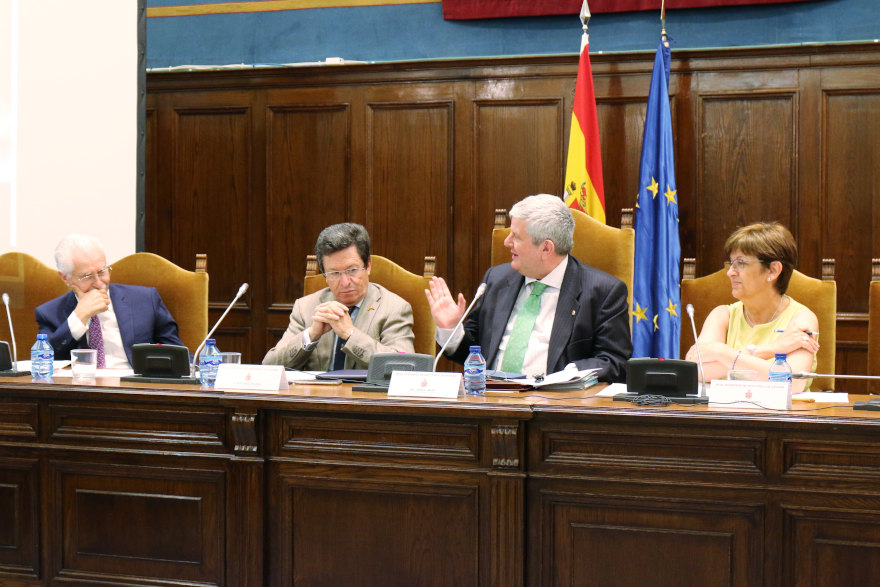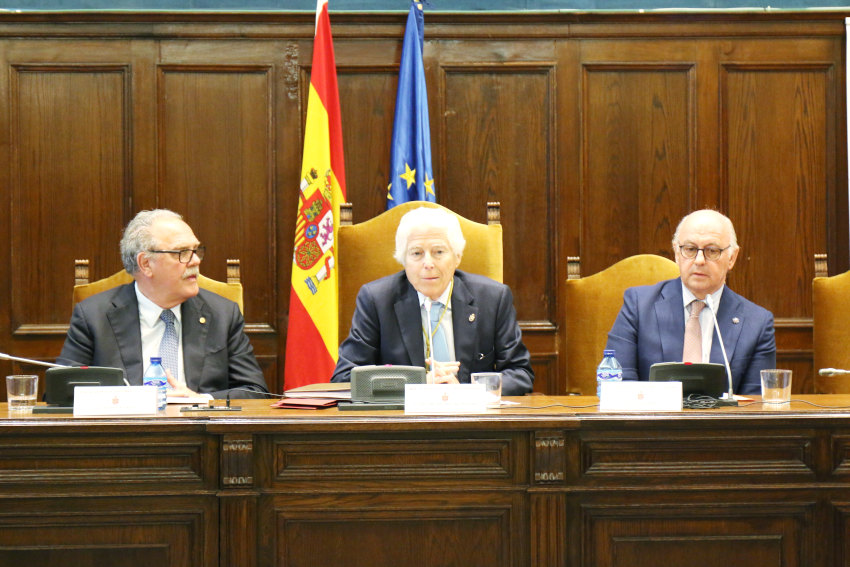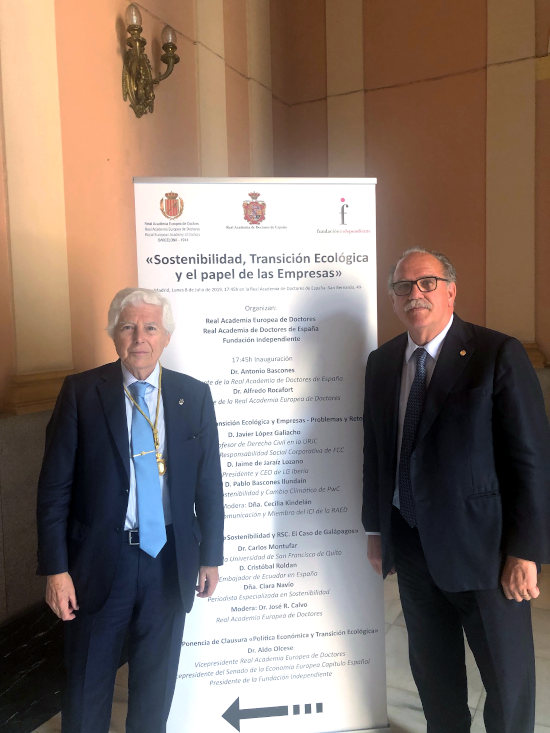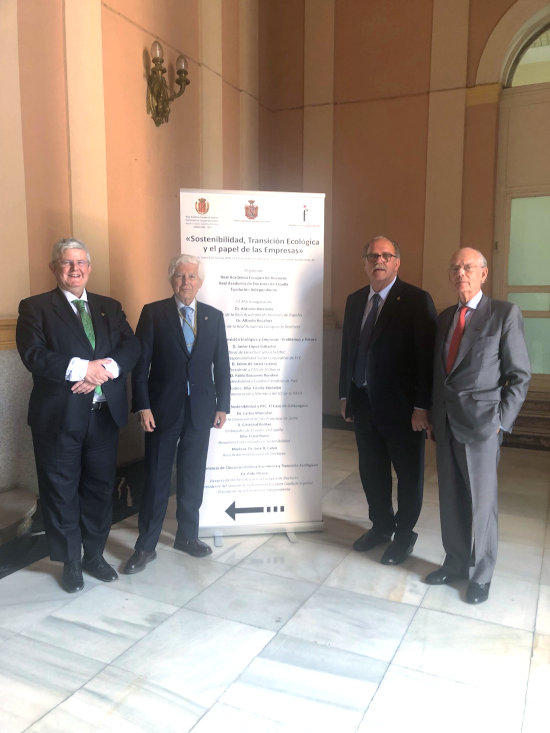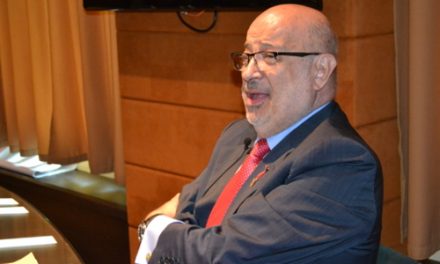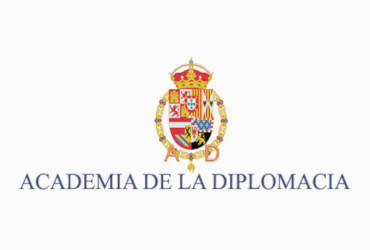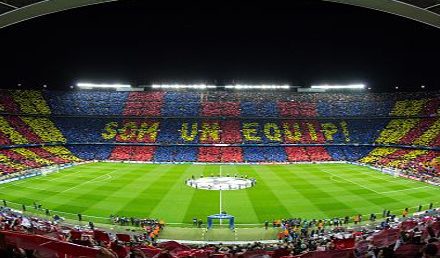The Royal Academy co-organizes in Madrid the debate “Sustainability, ecological transition and the role of companies”
The Royal Academy of Doctors of Spain, the Spanish Independent Foundation and the Royal European Academy of Doctors-Barcelona 1914 (RAED) held on July 8 in Madrid the debate “Sostenibilidad, transición ecológica y el papel de las empresas” (Sustainability, ecological transition and the role of companies). The session was led by Antonio Bascones, president of the Royal Academy of Doctors of Spain; Aldo Olcese, president of the Independent Foundation and vicepresident of the RAED; Alfredo Rocafort, president of the Royal European Academy of Doctors; José Ramón Calvo, full academician and president of the Institute of International Cooperation of the RAED, and Cecilia Kindelán, member of the Institute of International Cooperation. The academicians of the RAED Ignacio Buqueras, Francisco López Muñoz, Mario Barquero and Rafael Urrialde were also present.
The session was divided into two working groups. The first one, dedicated to the “Ecological transition and companies, problems and challenges”, was formed by Javier López Galiacho, professor of Civil Law at the Rey Juan Carlos University and director of Corporate Social Responsibility in Spanish company Fomento de Construcciones y Contratas; Jaime de Jaraíz, president of LG Iberia, and Pablo Bascones, partner of Sustainability and Climate Change in PwC. This table was moderated by Cecilia Kindelán. The second was titled “Sustainability and Corporate Social Responsibility: the case of Galapagos Islands” and was formed by Carlos Montufar, rector of the University of Saint Francis of Quito; Cristóbal Roldán, ambassador of Ecuador in Spain, and Clara Navío, journalist specialized in sustainability. Its moderator was José Ramón Calvo. The day concluded with the closing paper “Política económica y transición ecológica” (Economic policy and ecological transition), by Aldo Olcese.
At the first table, the speakers highlighted the urgency of stopping emissions of gases that produce the greenhouse effect to prevent temperatures rise to an average of five degrees in the next three decades, with the catastrophe for ecosystems and life of the man that it would behave. De Jaraíz explained how from his company they had already started tree planting using specific seeds and drones to launch one of the radical measures that many protectionist organizations point out. For Calvo, beyond commercial interests and the ability of man to implement initiatives of this type, the denial of climate change has been the main obstacle to advance in the solution of the problems.
The members of the second round table presented both the achievements of the protection policies of the Galapagos Islands so that they continue to be a safe environment for fauna and flora and one of the main refuges in the world regarding biodiversity as well as the dangers that threaten them. In this regard, the presence of a fishing fleet, mainly of Chinese and Panamanian flag, was mentioned in the vicinity of the protected areas, although in international waters, as well as the boarding of a ship that worked illegally and to which threatened species were confiscated. Likewise, climate change has become another of the serious threats of this environment.
Calvo pointed out how RAED has decided to participate in the denunciation of these threats, providing authorized voices and carrying out various actions that will culminate with a scientific expedition to the islands next year, to which five Nobel prizes will be added. After the visit, a manifesto will be prepared and sent to the competent international organizations. Olcese closed the sessions developing the concept of inclusive capitalism, stating that an economic policy can not be conceived without taking into account ecology, since today it constitutes the central axis of the economy.
“We need a deep transition, a new social contract in which we all have to participate, from the business base to the commitment of our politicians to citizens, and not only at the local, regional or even national level, because it would be a mistake not to assume it as a global concept, of all humanity”, said Olcese in what was the conclusion of the meeting.



